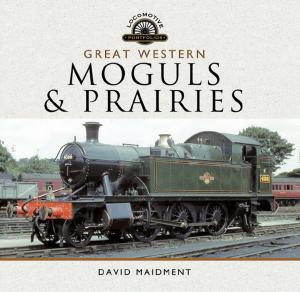Railway Renaissance
Britain's Railways After Beeching
Nonfiction, Reference & Language, Transportation, Railroads, Business & Finance| Author: | Gareth David | ISBN: | 9781473862029 |
| Publisher: | Pen and Sword | Publication: | September 30, 2017 |
| Imprint: | Pen and Sword Transport | Language: | English |
| Author: | Gareth David |
| ISBN: | 9781473862029 |
| Publisher: | Pen and Sword |
| Publication: | September 30, 2017 |
| Imprint: | Pen and Sword Transport |
| Language: | English |
When a 35 mile stretch of the former Waverley route from Edinburgh to Carlisle reopened on 6 September 2015, it became the most significant reopening of any UK railway since the infamous Beeching Report ,'The reshaping of British Railways', was published in March 1963.
In his report, Dr Riochard Beeching recommended sweeping closures of lines across the UK to improve the financial performance of British railways, which led to wholesale closures over the following decade and a reduction in the UK rail network from 18,000 miles in 1963, to some 11,000 miles a decade later.
But since that low point was reached in the early 1970s a revolution has been taking place. Passenger traffic on the railways is now at its highest level since the 1940s and from Alloa to Aberdare, as well as from Mansfield to Maesteg, closed lines have reopened and the tide of Beeching closures has been gradually rolled back. Scores of stations have been reopened and on many of the newly revived lines, passenger traffic is far exceeding the forecasts used to support their reopening.
In this comprehensive survey of new and reopened railways and stations across England, Scotland and Wales, Gareth David asks what it tells us about Dr Beeching's report, looking at how lines that were earmarked for closure in that report, but escaped the axe, have fared and reviews the host of further routes, which are either set to be reopened or are the focus of reopening campaigns.
When a 35 mile stretch of the former Waverley route from Edinburgh to Carlisle reopened on 6 September 2015, it became the most significant reopening of any UK railway since the infamous Beeching Report ,'The reshaping of British Railways', was published in March 1963.
In his report, Dr Riochard Beeching recommended sweeping closures of lines across the UK to improve the financial performance of British railways, which led to wholesale closures over the following decade and a reduction in the UK rail network from 18,000 miles in 1963, to some 11,000 miles a decade later.
But since that low point was reached in the early 1970s a revolution has been taking place. Passenger traffic on the railways is now at its highest level since the 1940s and from Alloa to Aberdare, as well as from Mansfield to Maesteg, closed lines have reopened and the tide of Beeching closures has been gradually rolled back. Scores of stations have been reopened and on many of the newly revived lines, passenger traffic is far exceeding the forecasts used to support their reopening.
In this comprehensive survey of new and reopened railways and stations across England, Scotland and Wales, Gareth David asks what it tells us about Dr Beeching's report, looking at how lines that were earmarked for closure in that report, but escaped the axe, have fared and reviews the host of further routes, which are either set to be reopened or are the focus of reopening campaigns.















